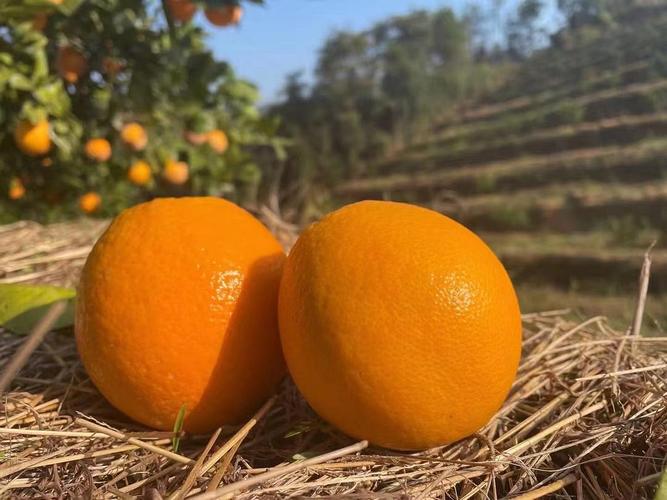
The global demand for certified, high-quality citrus fruits continues to rise, with Certified Navel Oranges China emerging as a trusted choice for retailers, wholesalers, and food brands worldwide. Renowned for their adherence to international standards, Chinese navel oranges combine exceptional sweetness, rigorous certifications, and cost-effective sourcing to meet the needs of health-conscious and sustainability-driven markets. This guide explores the certifications, benefits, and actionable insights for sourcing certified navel oranges from China.
—
Why Choose Certified Navel Oranges from China?
1. Stringent International Certifications
Chinese navel oranges are certified to meet global safety, quality, and sustainability standards, including:
– EU Organic Certification: Prohibits synthetic pesticides, GMOs, and synthetic fertilizers.
– USDA Organic: Ensures 100% organic farming practices for U.S. and Canadian markets.
– GlobalG.A.P.: Focuses on eco-friendly cultivation, worker welfare, and food safety.
– HACCP: Mitigates food safety risks at every stage of production and handling.
2. Cost-Effective Quality
China’s scalable production and advanced farming techniques deliver:
– Lower MOQs: Flexible order sizes (1 ton minimum) for startups and bulk buyers.
– Competitive Pricing: Up to 30% cheaper than EU or U.S.-grown counterparts.
– Eco-Friendly Packaging: Recyclable crates and compostable liners to reduce carbon footprint.
3. Market Adaptability
Certified suppliers cater to diverse buyer needs:
– Retail Ready: Pre-packaged for organic supermarkets and e-commerce platforms.
– Juice Production: High juice yield (60–65%) for smoothies and concentrates.
– Food Service: Bulk supplies for hotels, restaurants, and catering.
—
Key Certifications for Chinese Navel Oranges
1. EU Organic Certification
– Guarantees pesticide-free farming and adherence to EU Regulation 2018/848.
– Ideal for eco-conscious buyers in Europe.
2. Non-GMO Compliance
– Verified through GlobalG.A.P. and USDA Organic standards.
– Aligns with health-focused markets in North America and Asia.
3. Pesticide-Free Certification
– Rigorous testing ensures zero chemical residues (EU MRL standards).
– Essential for retailers and food brands prioritizing safety.
—
How to Source Certified Navel Oranges from China
Step 1: Verify Certifications
– Request certificates (EU Organic, GlobalG.A.P., HACCP) and third-party audit reports.
– Confirm compliance with target market regulations (e.g., FDA for the U.S.).
Step 2: Evaluate Farming Practices
– Ask about pest management (e.g., integrated pest management), water conservation, and soil health.
– Prioritize suppliers using sustainable practices like drip irrigation.
Step 3: Negotiate Terms
– Discuss pricing models (FOB, CIF) and MOQs (e.g., 1-ton batches for small orders).
– Clarify payment terms (e.g., 30% deposit, 70% before shipment).
Step 4: Ensure Quality Assurance
– Request pre-shipment samples to test sweetness (12–15 Brix), texture, and compliance.
– Confirm suppliers provide phytosanitary certificates and export licenses.
Step 5: Optimize Logistics
– Choose sea freight (25–35 days) for cost efficiency or air freight (5–7 days) for urgency.
– Partner with suppliers offering cold chain logistics and customs clearance support.
—
Market Trends Shaping Demand
1. Clean Label Movement
European and North American consumers prioritize Non-GMO, pesticide-free fruits. Certified Chinese navel oranges align with this trend, boosting retail sales in organic stores.
2. Corporate Sustainability Goals
Brands are adopting carbon-neutral sourcing policies, favoring suppliers with eco-friendly practices like biodegradable packaging and water conservation.
3. Regulatory Compliance
Stricter EU regulations (e.g., EU Organic Regulation 2018/848) require traceability, favoring certified Chinese suppliers.
—
FAQs: Certified Navel Oranges China
Q: Are Chinese certified navel oranges GMO-free?
A: Yes, EU Organic Certification and USDA Organic prohibit GMOs, ensuring full compliance.
Q: How long does shipping take to Europe?
A: Sea freight takes 25–35 days. Air freight ensures delivery in 5–7 days. Discuss cold chain logistics options with your supplier.
Q: Can I customize packaging for organic markets?
A: Suppliers offer recyclable, compostable, or branded packaging compliant with EU directives.
Q: What certifications are needed for the U.S. market?
A: USDA Organic Certification is mandatory for labeling as organic in the U.S.
—
Final Thoughts
Certified Navel Oranges China combine sustainability, quality, and affordability, making them a strategic choice for global businesses. By partnering with certified suppliers, prioritizing cold chain efficiency, and adhering to international standards, you can secure a reliable supply chain that meets the demands of eco-conscious consumers.
Start Sourcing Today
Connect with verified Chinese suppliers to unlock competitive pricing, seasonal promotions, and customized solutions for your business.
Article link:https://www.vlefooena.com/manufacturer/3470

No reply content